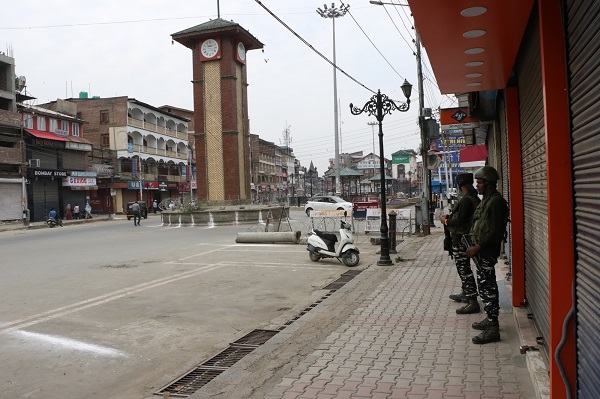New Delhi, The alteration of Article 370 could only be at the instance of people of the state, the Union only had an executive role and there was no role of Parliament, said a senior counsel of a petitioner, challenging the Centre’s decision on revocation of provisions of Article 370, in the Supreme Court on Tuesday.
Senior advocate Raju Ramachandran, representing petitioners — Shah Faesal and others — opening arguments on the first day of the hearing, said, “The terms of entry of J&K into the Indian Union, recognised in the 1954 Order, accord protection to its territorial integrity by making the powers of Parliament under Article 3 of the Constitution contingent on the consent by the state’s legislature.”
A five-judge Constitution Bench, headed by Justice N.V. Ramana and comprising Justices Justices S.K. Kaul, R. Subhash Reddy, B.R. Gavai and Surya Kant, is hearing the case.
Ramachandran said the extent of the state of J&K could only be changed subject to strict federal and democratic guarantees “to the extent that J&K’s legislature and the Constituent Assembly earmarked “empty” seats for absent representatives of the people residing in those regions of the state not under India’s control. The breakup of J&K is a violation of this recognition.”
He said the J&K Reorganisation Act, 2019 violated Article 3 of the Constitution as the character of a state couldn’t be extinguished in its entirety into two Union Territories.
The advocate said the state of J&K acceded to India and had been an integral part of India since the accession. “This was also affirmed by the Constituent Assembly of J&K in the J&K Constitution, which in Article 3 declares that the state of J&K is an integral part of India.” he said.
Ramachandran also insisted that in altering the constitutional relationship of a state with the Union, every principle of constitutionalism had to be scrupulously followed.
“The President doesn’t acquire the constituent powers of the government of the state of J&K under Article 370(I)(d), to give concurrence to a modification of the Constitution as applied to the state”, he said. Hence, such power to give concurrence can’t be exercised by the Governor either, as he is merely a delegate of the President in the state, under President’s Rule.”
The hearing will continue on Wednesday.










